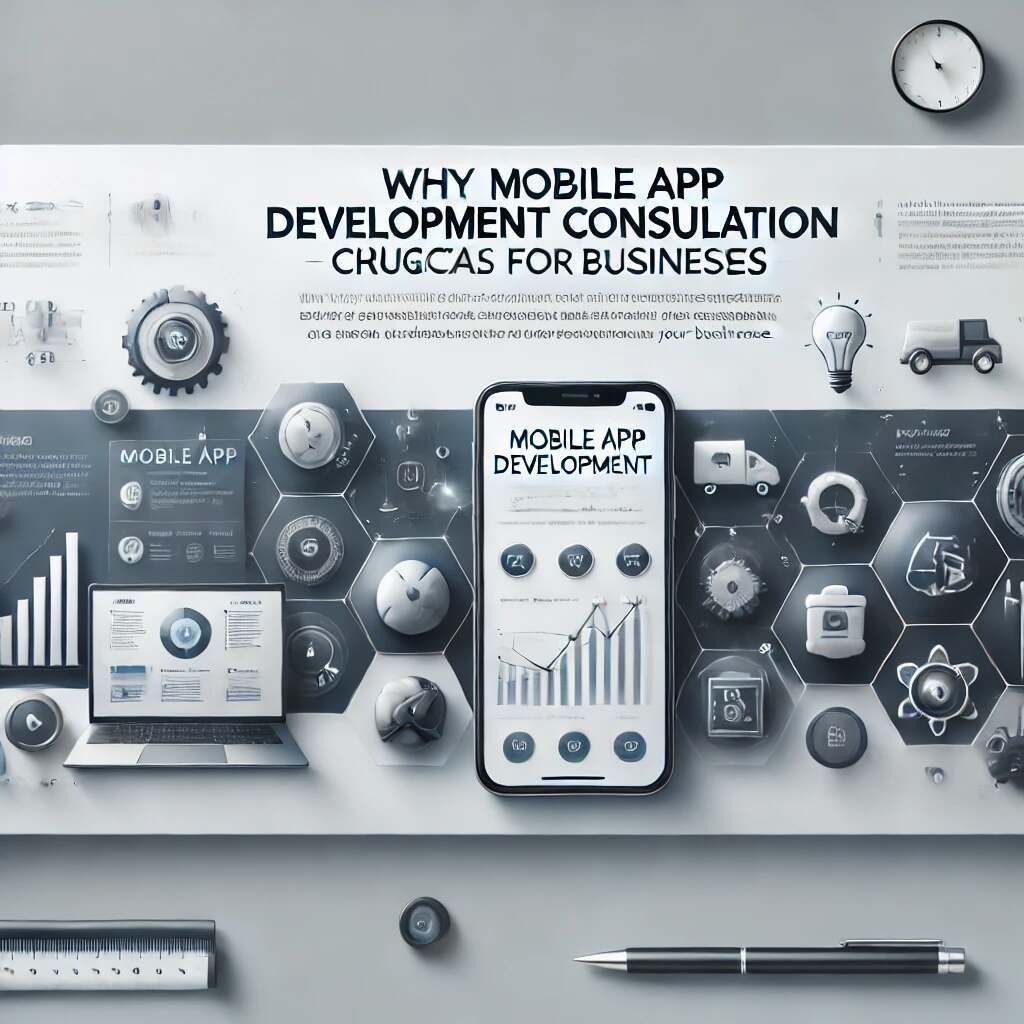Having a mobile app is becoming more than just a trend; for companies trying to survive in a cutthroat market, it is a need. Many times, businesses hurry into app development without really understanding the difficulty involved. This is when consulting mobile app development becomes absolutely important.
Before entering the development stage, companies need to take many different things into account; hence, consultation helps to build a strong basis for their app strategy.
Appreciating Business Needs
Understanding their particular demands and goals is the first step organizations should take when deciding to create a mobile app. Many businesses, I have observed, concentrate just on having an app without thinking through what it should achieve. A consultation helps companies to precisely state their goals. Is the software designed, for instance, to raise sales, improve consumer involvement, or simplify internal procedures? Early on identification of these goals helps companies prevent later expensive blunders.
Assessing the Market and Competitors
One significant advantage of mobile app development consulting is that it helps businesses to assess the market and understand their competitors better. I have seen companies fail because they did not research the market properly. Through consultation, businesses can analyze what their competitors are doing, what works for them, and what doesn’t. This analysis provides valuable insights that can shape the app’s development strategy. For instance, businesses can identify gaps in the market that their app could fill, giving them a competitive edge.
Choosing the Right Technology
The technology used in mobile app development is constantly evolving. I’ve noticed that businesses often struggle with choosing the right technology stack for their app. Whether it’s deciding between native or cross-platform development, or selecting the appropriate tools and frameworks, the choices can be overwhelming. A consultation with an experienced developer can help businesses make informed decisions about the technology that best suits their app’s requirements. This not only ensures that the app functions smoothly but also makes future updates and maintenance easier.
Budget Management
Budget is a critical aspect of any app development project. I have encountered businesses that underestimate the cost of developing a mobile app, leading to unfinished projects or apps that fall short of expectations. During a consultation, businesses can work with developers to create a realistic budget that takes into account all aspects of the project, from design and development to testing and deployment. This not only prevents financial strain but also ensures that the project stays on track and meets its objectives.
Design and User Experience
The design and user experience (UX) of a ready made mobile app play a vital role in its success. I’ve observed that businesses sometimes prioritize functionality over design, which can lead to poor user retention. A consultation allows businesses to work closely with designers to create an app that is not only functional but also visually appealing and user-friendly. This is especially important because the app’s design is often the first thing users notice. A well-designed app can significantly improve user satisfaction and increase engagement.
Risk Mitigation
Every app development project comes with its own set of risks. These could range from technical challenges to changes in market conditions. I have seen businesses face setbacks because they did not anticipate potential risks. Through consultation, businesses can identify these risks early on and develop strategies to mitigate them. For example, they can plan for potential delays in development, changes in user needs, or even shifts in technology trends. By doing so, they can reduce the impact of these risks on the overall project.
Scalability and Future-Proofing
Another crucial aspect of mobile app development that businesses often overlook is scalability. I believe that businesses should think about how their app will grow over time. A consultation helps them to plan for the future by considering factors such as increasing user numbers, adding new features, or even expanding to new markets. This ensures that the app can evolve alongside the business without requiring a complete overhaul. In addition, consultation can help businesses to future-proof their app by keeping it adaptable to new technologies and trends.
Legal and Compliance Issues
Mobile app development isn’t just about coding; there are also legal and compliance issues to consider. I’ve come across businesses that have faced legal challenges because they didn’t address these issues early on. During consultation, businesses can work with legal experts to ensure that their app complies with all relevant regulations, such as data protection laws or industry-specific guidelines. This not only protects the business from legal risks but also builds trust with users by ensuring their data is handled responsibly.
Integration with Existing Systems
For many businesses, a mobile app isn’t a standalone product; it needs to integrate with existing systems, such as databases, CRM tools, or other software. I’ve noticed that businesses often struggle with these integrations, leading to inefficiencies and data silos. Through consultation, businesses can ensure that their app seamlessly integrates with their existing infrastructure. This not only streamlines operations but also provides a better user experience by allowing data to flow smoothly between systems.
Testing and Quality Assurance
Finally, I believe that testing and quality assurance (QA) are critical components of the app development process. However, businesses often underestimate the time and resources required for thorough testing. A consultation allows businesses to develop a comprehensive QA plan that covers all aspects of the app, from functionality and performance to security and usability. This ensures that the app is of the highest quality before it reaches users, reducing the likelihood of bugs or other issues that could harm the app’s reputation.
Conclusion
Development of a mobile app is not only a necessary stage but also a vital one that can greatly affect the outcome of a project. From better planning and budgeting to enhanced design and risk management, I have personally experienced how organizations gain from consulting. Businesses may guarantee that their mobile app not only works but also fits their general objectives by investing time to consult professionals. In the end, this prepares the ground for a good introduction and steady expansion.



